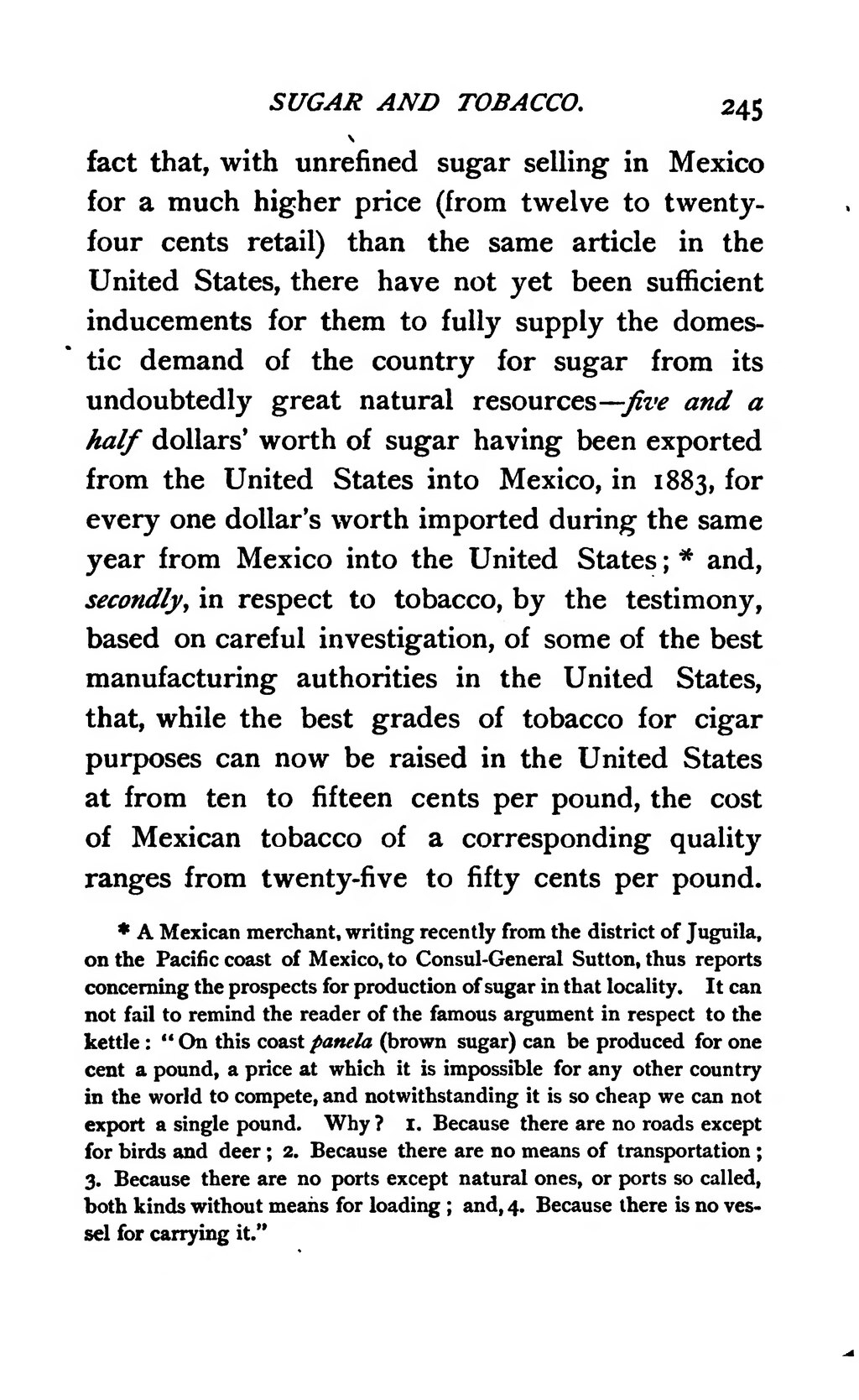fact that, with unrefined sugar selling in Mexico for a much higher price (from twelve to twenty-four cents retail) than the same article in the United States, there have not yet been sufficient inducements for them to fully supply the domestic demand of the country for sugar from its undoubtedly great natural resources—five and a half dollars’ worth of sugar having been exported from the United States into Mexico, in 1883, for every one dollar's worth imported during the same year from Mexico into the United States;[1] and, secondly in respect to tobacco, by the testimony, based on careful investigation, of some of the best manufacturing authorities in the United States, that, while the best grades of tobacco for cigar purposes can now be raised in the United States at from ten to fifteen cents per pound, the cost of Mexican tobacco of a corresponding quality ranges from twenty-five to fifty cents per pound.
- ↑ A Mexican merchant, writing recently from the district of Juguila, on the Pacific coast of Mexico, to Consul-General Sutton, thus reports concerning the prospects for production of sugar in that locality. It can not fail to remind the reader of the famous argument in respect to the kettle: "On this coast panela (brown sugar) can be produced for one cent a pound, a price at which it is impossible for any other country in the world to compete, and notwithstanding it is so cheap we can not export a single pound. Why? 1. Because there are no roads except for birds and deer; 2. Because there are no means of transportation; 3. Because there are no ports except natural ones, or ports so called, both kinds without means for loading; and, 4. Because there is no vessel for carrying it."
